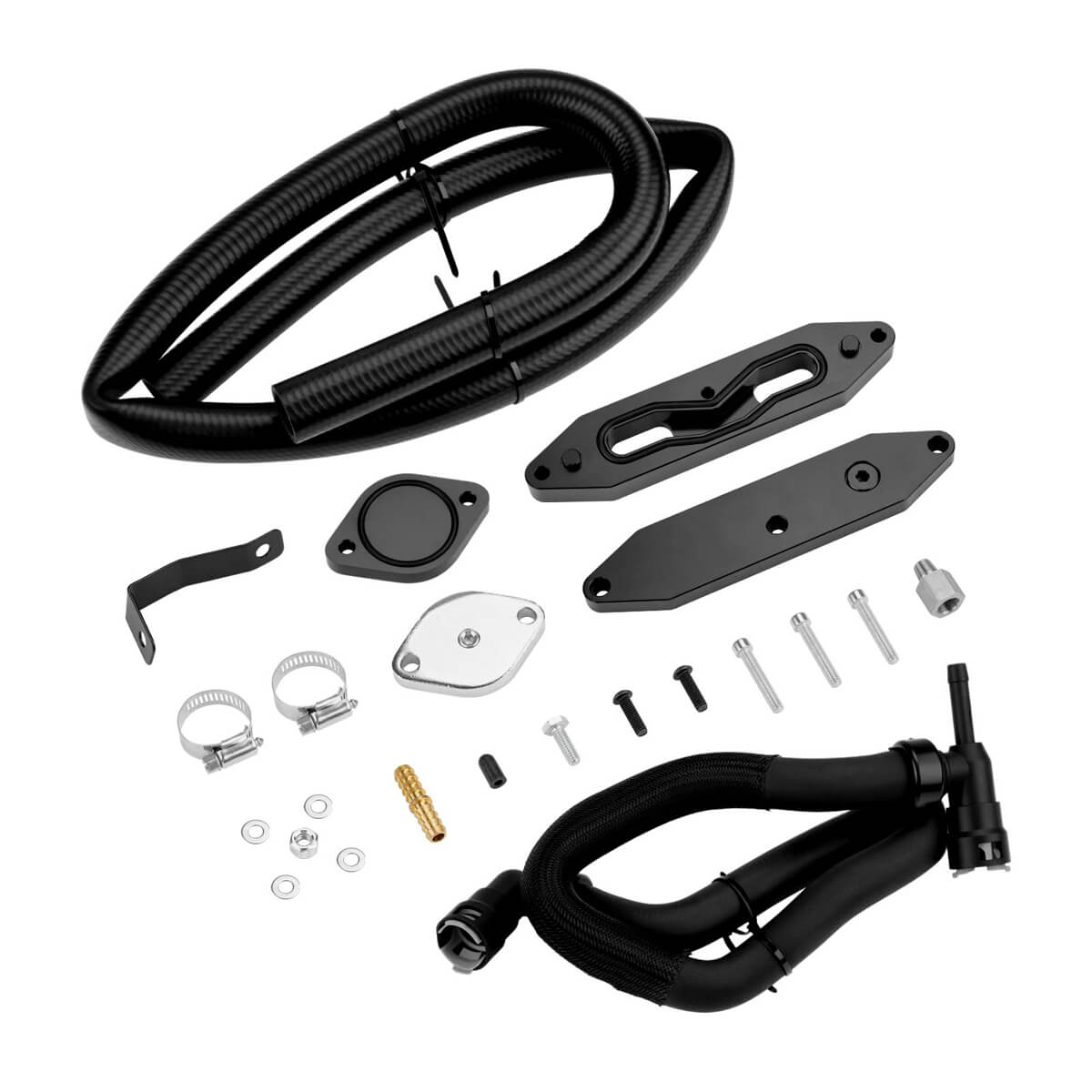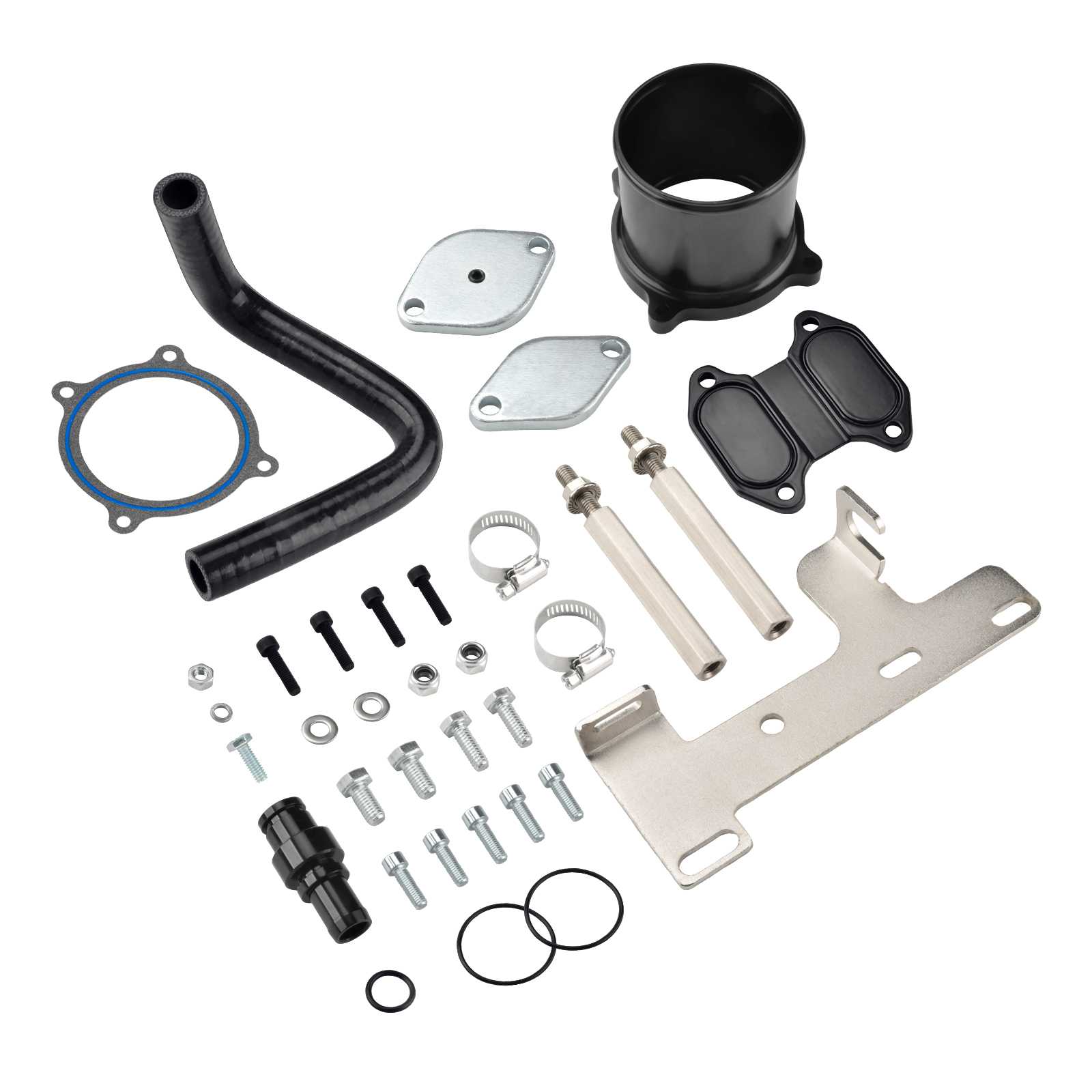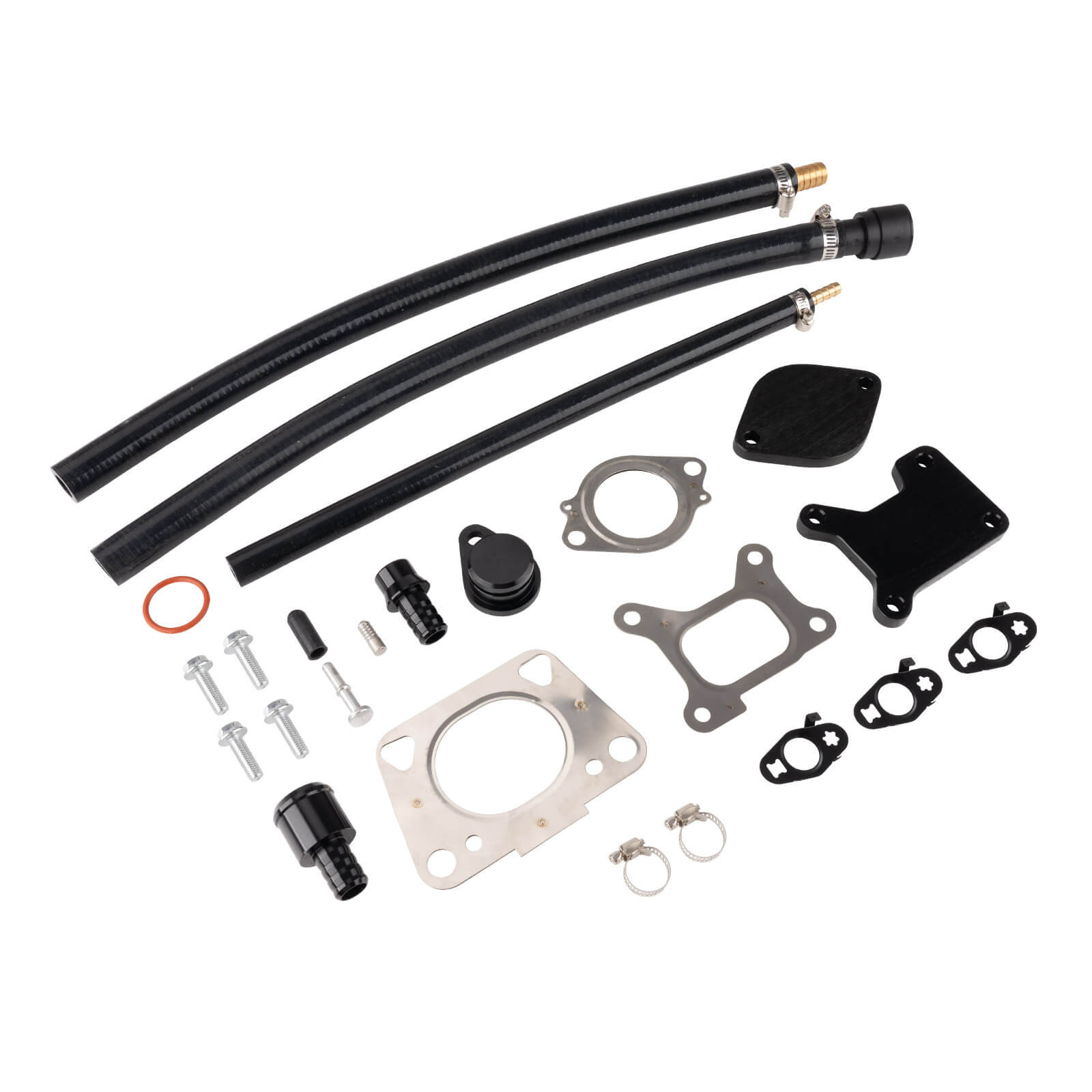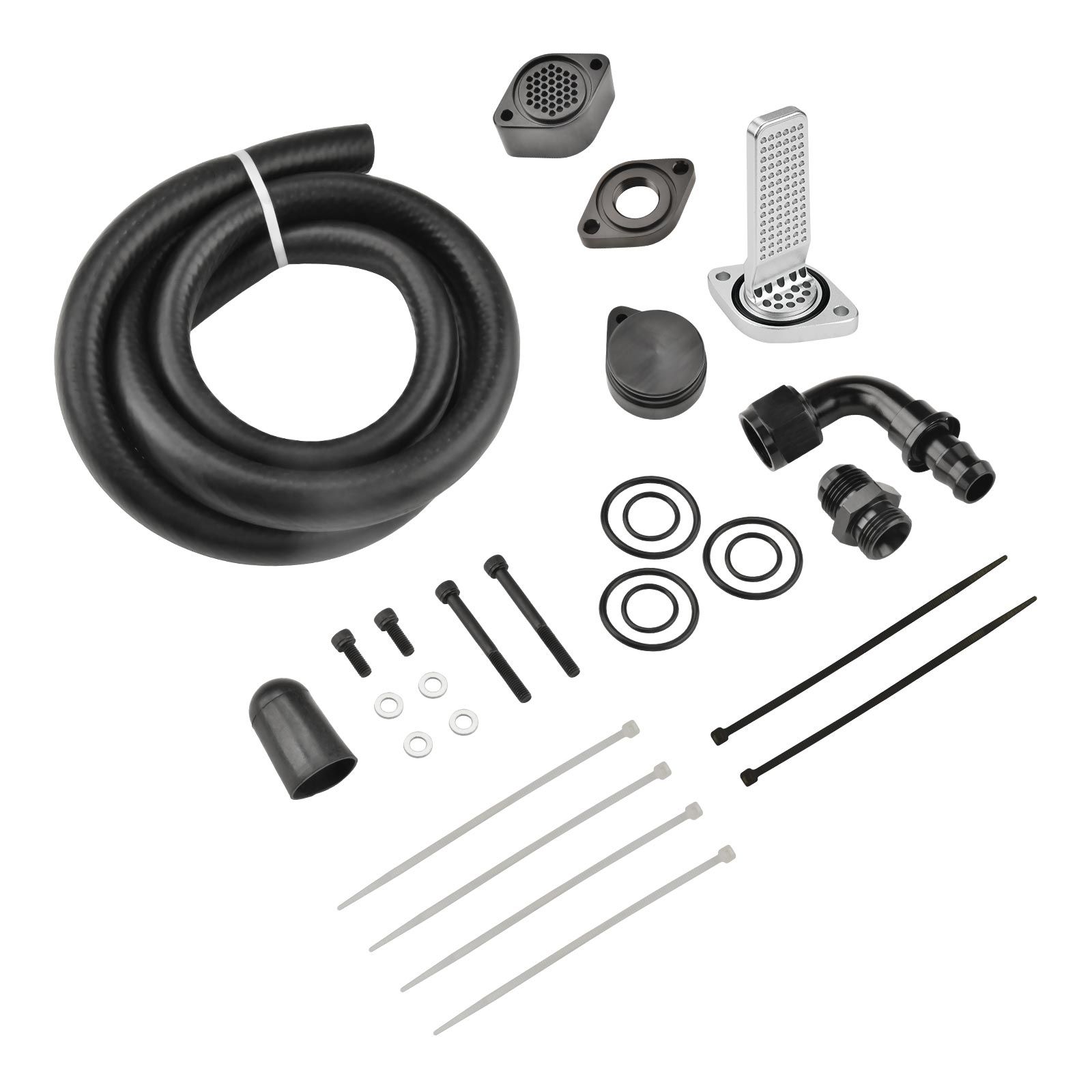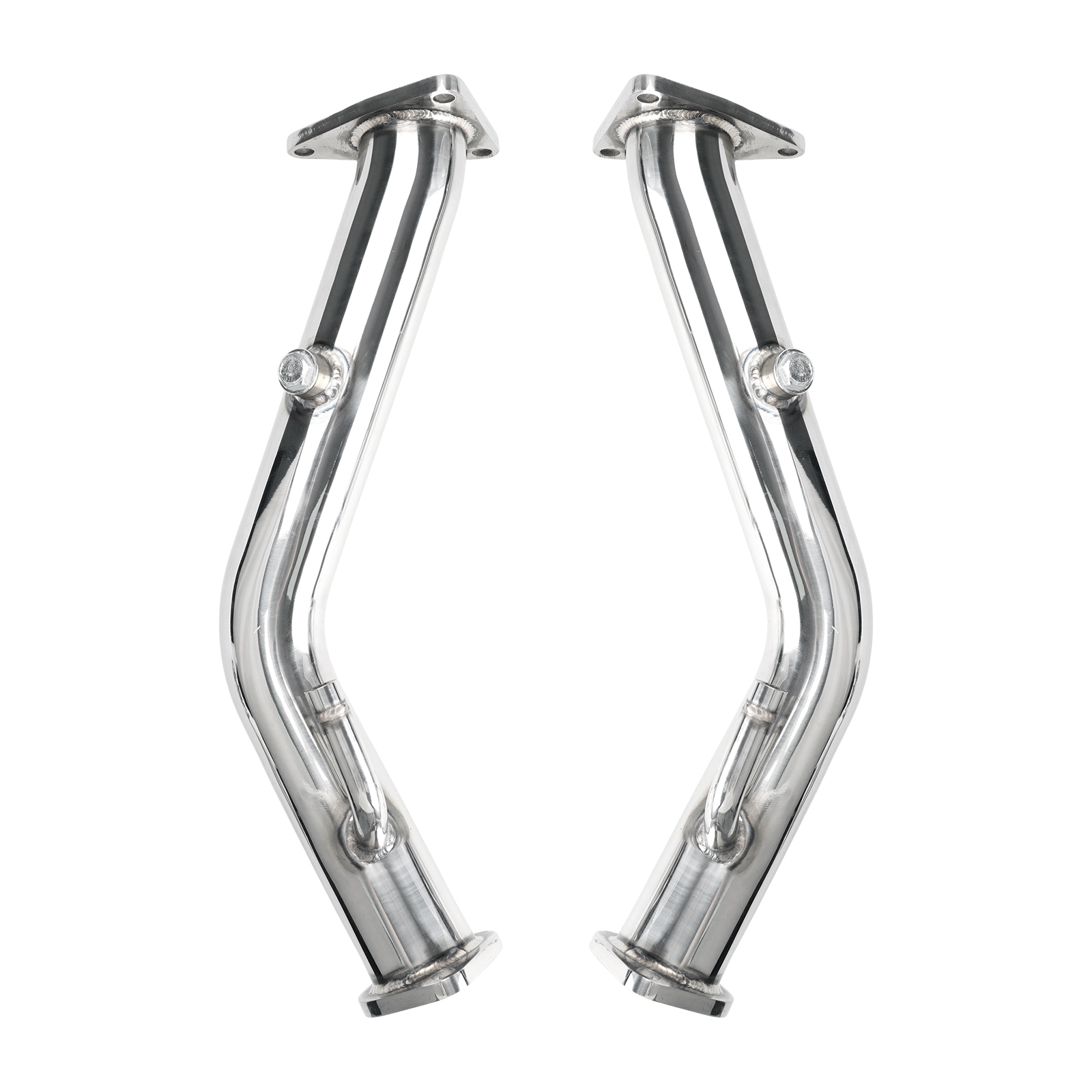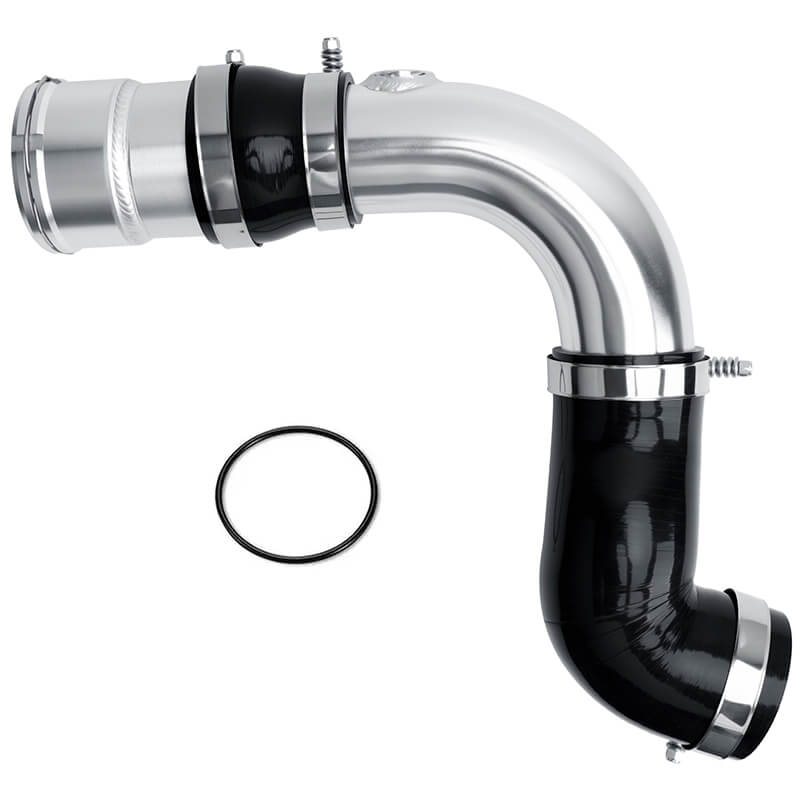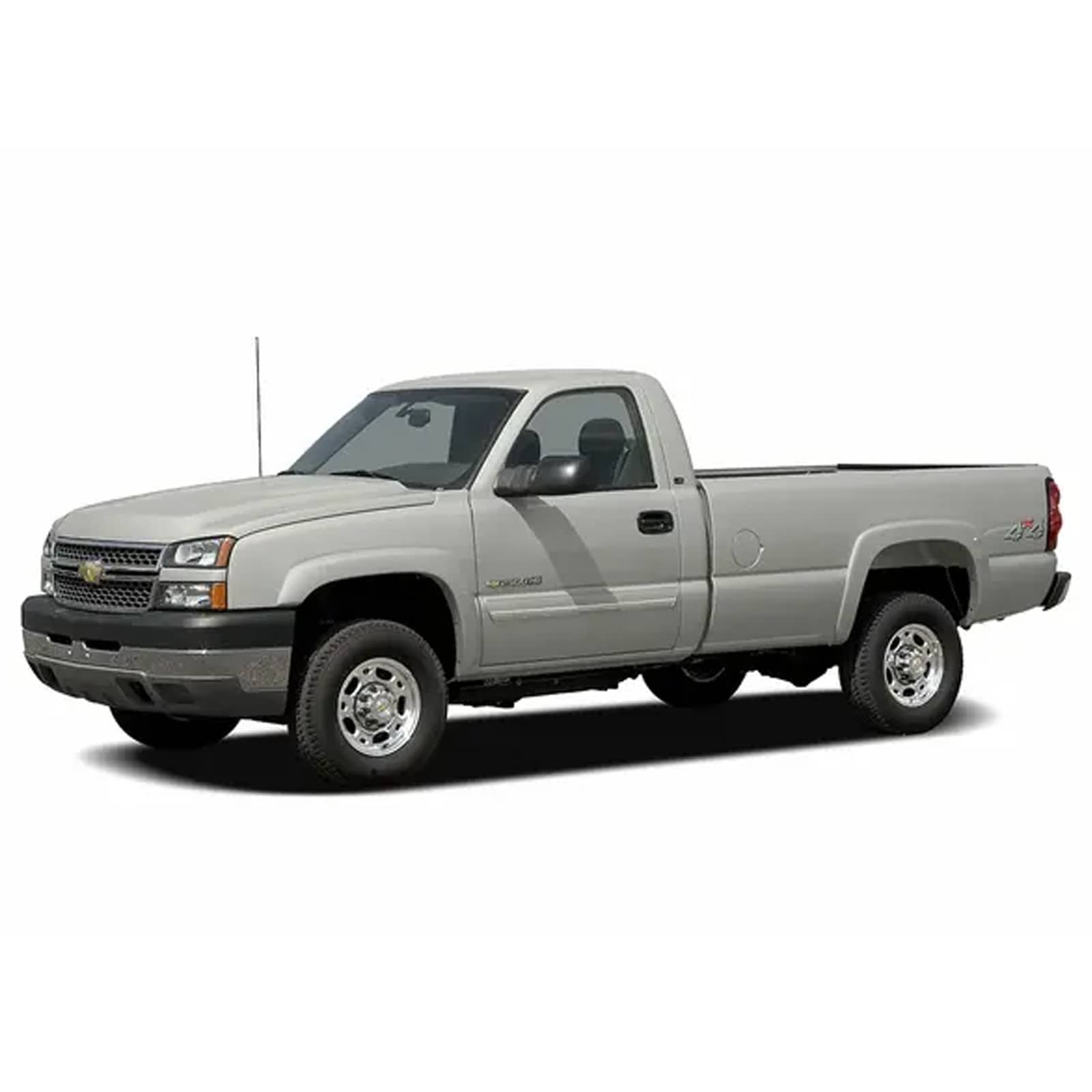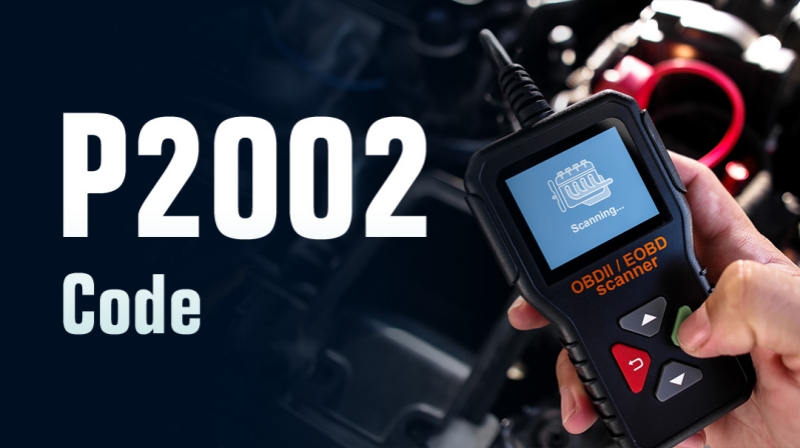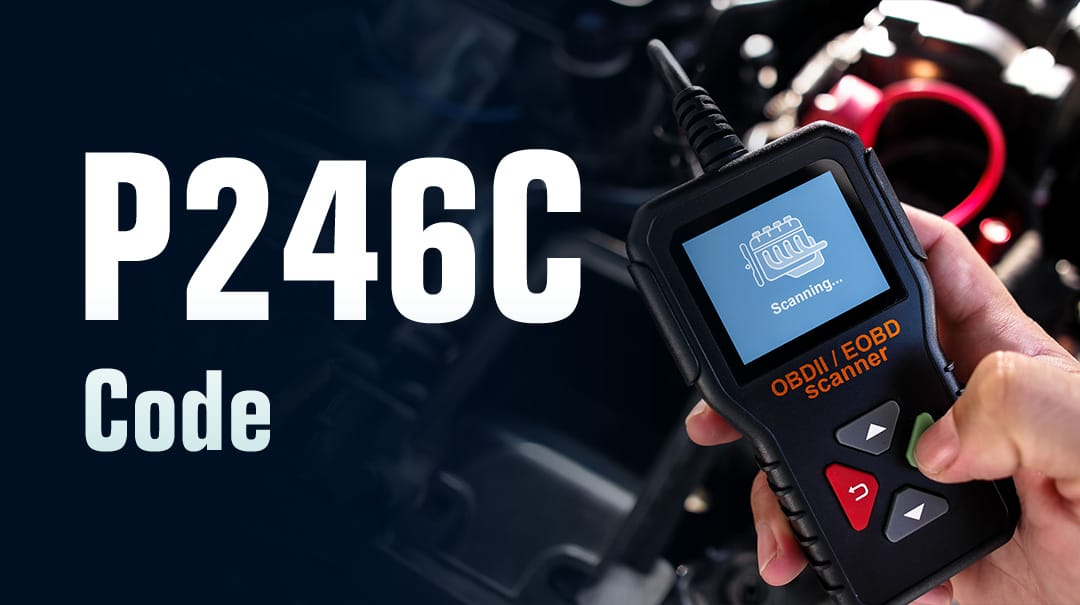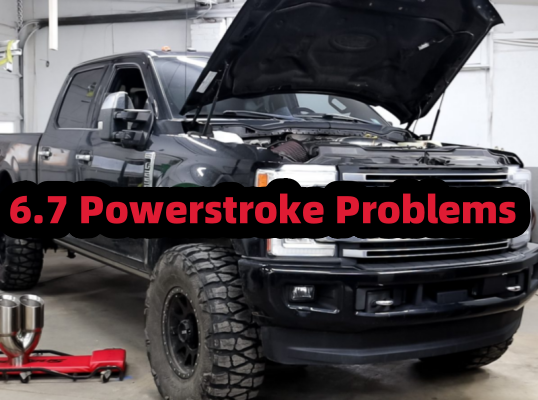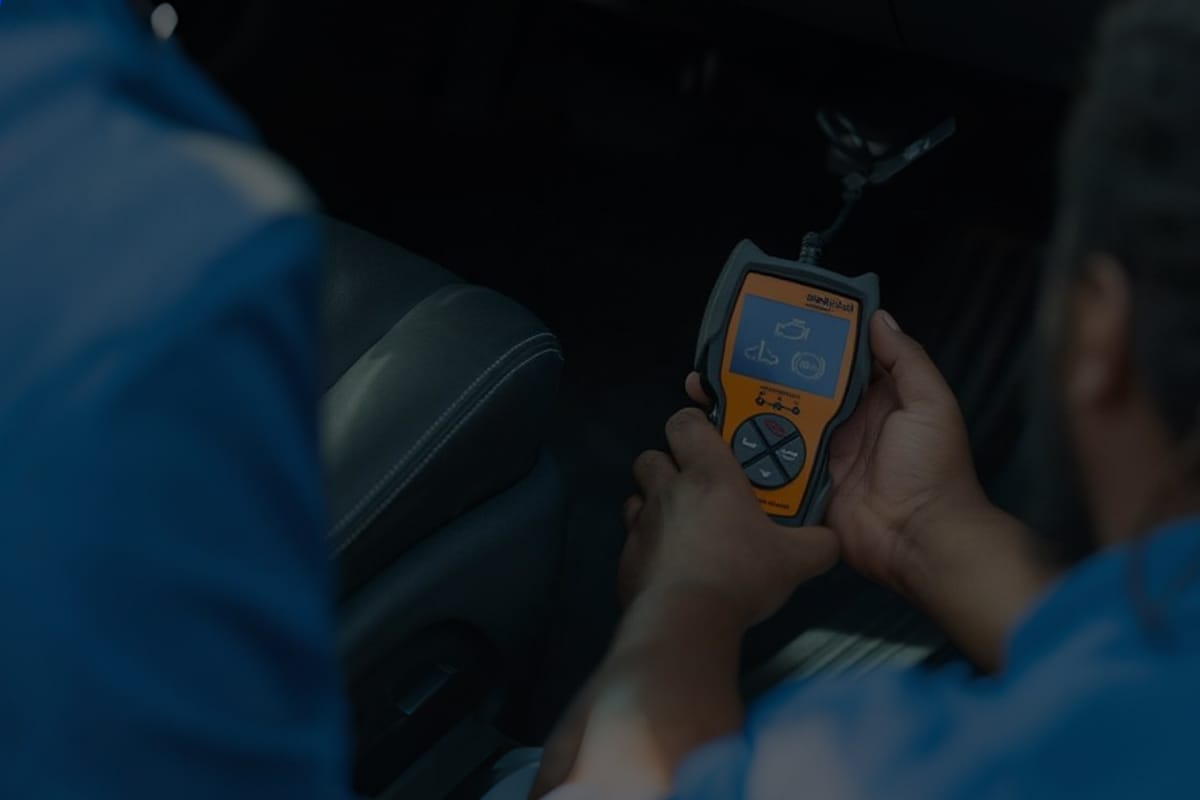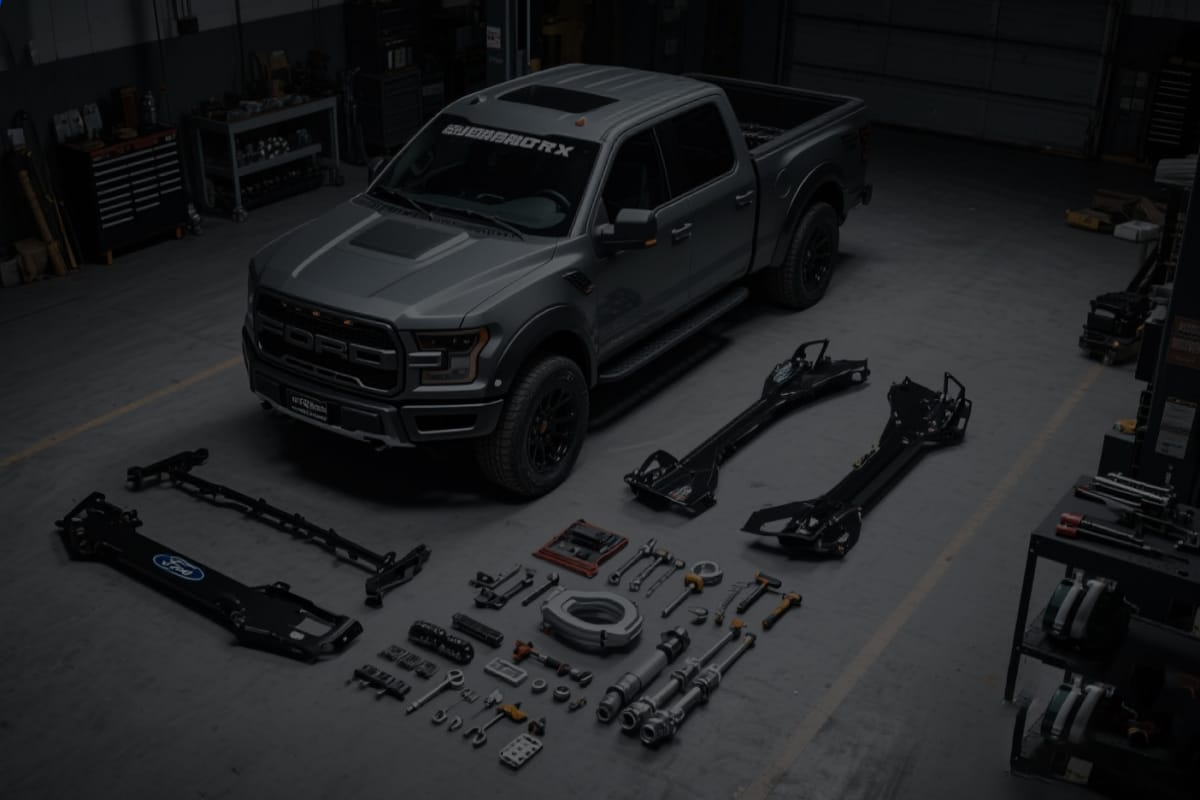The 7.3L Powerstroke diesel engine, produced between 1994 and 2003, is known as the "Engine of Legend" for its reliability and durability. However, even an engine this powerful is not immune to some common issues. Over the years, certain parts are susceptible to wear, failure, or reduced performance, especially in cold weather or under heavy loads.
In this guide, we'll analyze the 12 most common 7.3 Powerstroke problems, show you how to identify them, and provide practical solutions to fix or prevent them. We'll also answer some common questions to help keep your truck running strong.
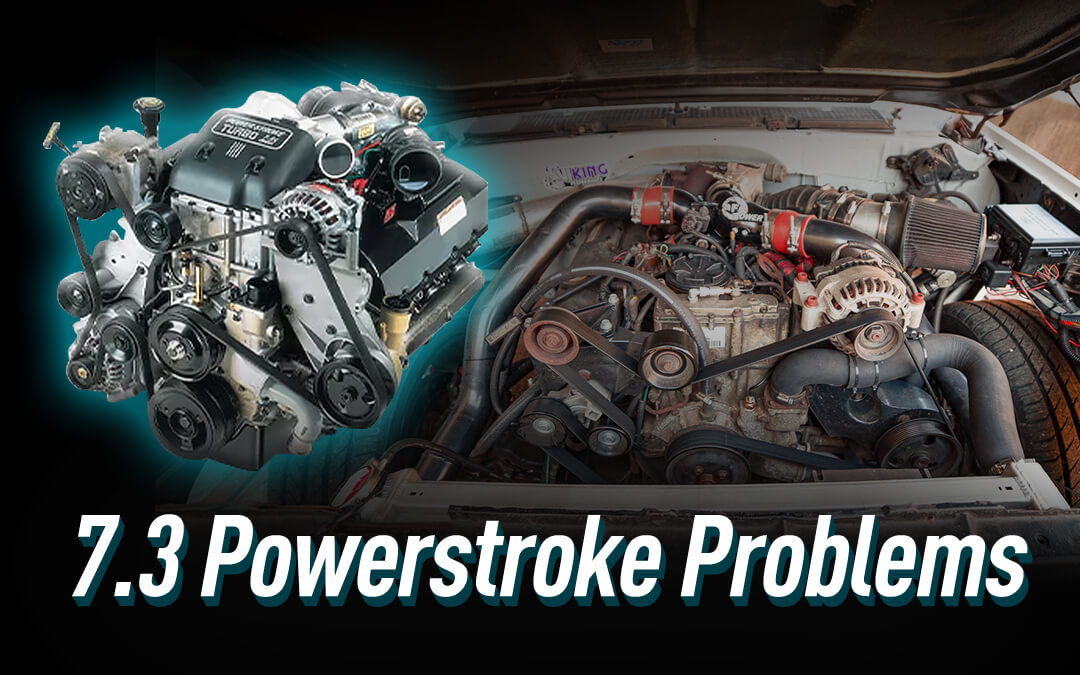
Top 12 Most Common Problems with 7.3 Powerstroke
1. Exhaust Manifold Leak
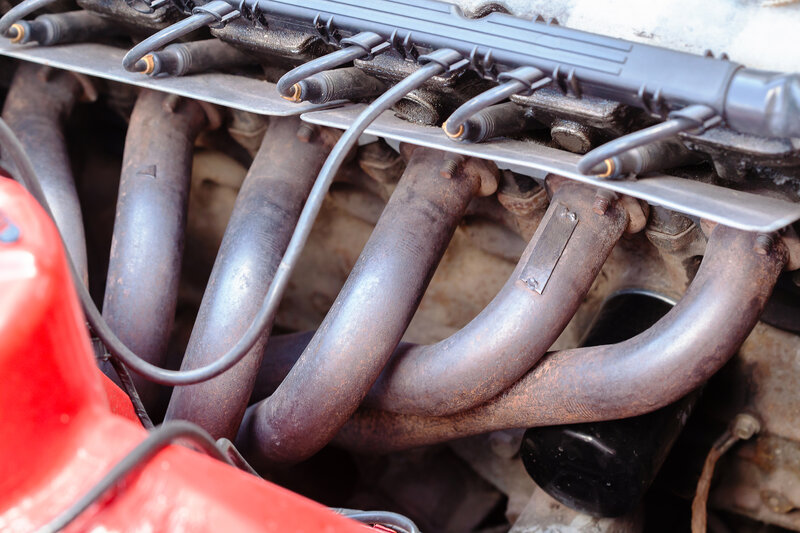
Cause: Broken bolts, rusted flanges or damaged gaskets.
Consequences: Loss of exhaust pressure, reduced power, increased noise.
Detection method: Listen for a noticeable "hissing" sound during cold start and check for black carbon marks around the manifold.
Solution: Replace the original manifold or upgrade to an aftermarket manifold.
2. Turbocharger Pipe Leak
Cause: Cracked pipe, worn gasket or loose V-band clamp due to thermal cycling.
Symptoms: Obvious turbo lag, sluggish acceleration and reduced fuel economy.
Fix: Replace with a high-quality aftermarket upper pipe kit for better sealing and performance.
3. Injection Pressure Regulator (IPR) Valve Problem
Function: Controls high-pressure oil to ensure the proper operation of the injectors, which is critical for cold starts.
Symptoms: After the fault, there will be difficult starting, unstable idle speed or engine flameout.
Diagnosis: Use a scan tool to monitor the IPR duty cycle or perform a bench test. Check the screen for metal debris.
Fix: If the IPR valve is contaminated, disassemble and clean; if it is faulty, replace.
4. Faulty Injector Driver Module (IDM)
Cause: Water intrusion, corrosion, or wear from age.
Effect: If the IDM fails (due to water ingress, age, or wiring problems), the injectors will not fire, resulting in rough operation or flameout.
Solution: Test and replace the IDM, or have it repaired by a reputable professional.
5. Faulty Cam Position Sensor (CPS)
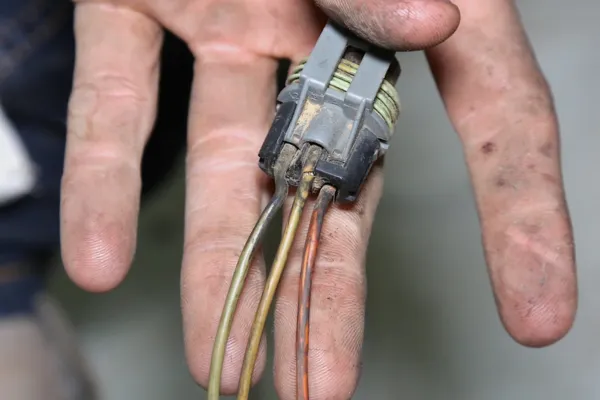
Symptoms: Sudden, random engine stalls, rough idle, and difficult starting.
Recommendation: Always use the original or upgraded (grey or blue) sensor, as aftermarket products can be unreliable.
Tip: This is one of the most common no-start causes for the 7.3L Powerstroke.
6. Problem with Under Valve Cover Harness Connector (UVCH)
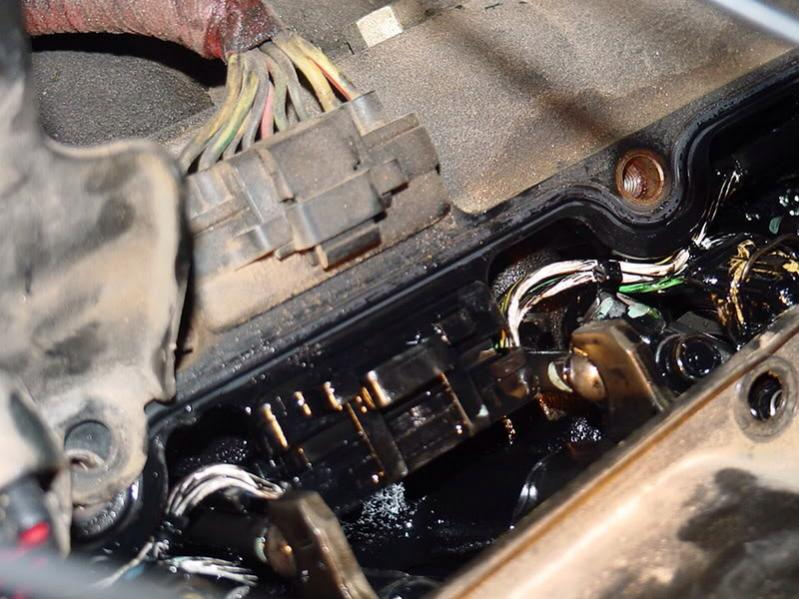
Function: Provides power to the injectors and glow plugs.
Problem: Hard starting, cylinder misfire, or glow plug failure.
Inspection Tip: Check the connector every time you remove the valve cover for gasket maintenance.
Fix: Replace a damaged UVCH or upgrade to a clip-on harness.
7. Clogged Fuel Filter
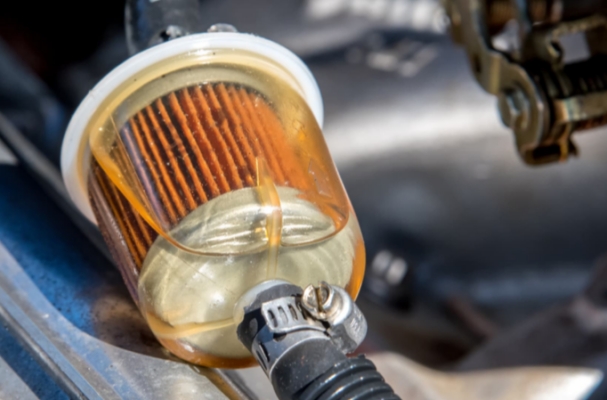
Effect: Low oil pressure, engine vibration, weak acceleration.
Solution: Replace the factory fuel filter. Keep a spare filter in the truck, especially for long trips.
Maintenance Tip: Replace the fuel filter every 15,000 miles (or sooner if the diesel is poor quality).
8. Faulty Lift Pump
Effect: The engine high pressure rail will not receive enough fuel, causing the injectors to misfire or fail to prime.
Test: Open the fuel filter drain, if no fuel comes out, the lift pump may be bad.
Fix: Replace with a quality electric or mechanical lift pump.
9. Faulty Injector Control Pressure (ICP) Sensor
Function: Reports oil pressure to the truck's PCM, which is used to control injector timing.
Symptoms: Black smoke, rough idle, poor throttle response, stalling.
Solution: Replace the ICP sensor and clean its pigtail connector to ensure a reliable connection.
10. Engine Overheating
Cause: Faulty water pump, clogged radiator, or faulty thermostat.
Consequence: Expensive repairs due to a faulty cylinder head gasket or severe engine damage.
Preventive measures: Check the coolant level regularly and make sure the radiator fan is running properly.
11. Diesel Heater Problem
Function: Prevent diesel from solidifying in cold climates.
Symptoms: Difficult starting in winter, possible fuel injector damage.
Detection: Check the fuse at the bottom of the fuel filter.
Fix: Replace the fuse or heating element.
12. Exhaust Back Pressure Valve (EBPV) Problem
Common cold start failure: If the EBPV is stuck, you will notice a dull exhaust sound and white smoke.
Fix: Remove the EBPV or install a delete kit to improve reliability in mild climates.
Summary: Keep Your 7.3 Powerstroke in Top Condition
Even decades later, the 7.3L Powerstroke is still one of the best diesel engines on the market. While it has some common failure points, repairs are generally inexpensive and easy to diagnose with the right tools.
For most drivers, the key systems to monitor include:
- Cam Position Sensor (CPS);
- Injection Pressure Regulator (IPR);
- Injector Driver Module (IDM);
- Fuel System Components (Filters, Pumps, ICP Sensors).
👉Proactive maintenance is key. Change the oil, check the lines, and replace the filter on time to avoid costly failures.
Frequently Asked Questions about 7.3 Powerstroke Problems
What are the most common problems with the 7.3 Powerstroke?
The main issues include: CPS failure, IPR valve failure, IDM failure, glow plug problems and fuel system blockage.
How do I know if my IPR valve is bad?
Watch for these symptoms: long start time, idle fluctuations or power loss. Alternatively, you can confirm with an OBD-II fault code or a professional oil pressure test.
Why won't my 7.3 start when it's cold?
Possible causes: glow plug system failure, low battery voltage, diesel gelling or winter oil thickness.
Is the 7.3 Powerstroke still worth buying in 2025?
Of course. If properly maintained, it is one of the most reliable and DIY-friendly diesel engines for towing, daily driving or off-roading.
Is the 7.3 Powerstroke expensive to maintain?
Not at all. Parts for these systems are affordable compared to newer diesel systems, and many repairs can be done yourself.
Can I still drive with a failed boost pump?
No. Low oil pressure can damage the injectors - have them inspected and repaired immediately.
Is the 7.3 Powerstroke expensive to maintain?
No. Maintenance costs are modest and many jobs can be done at home with only basic tools.












